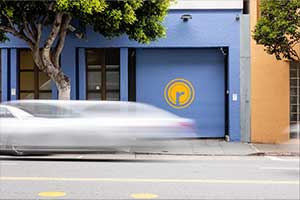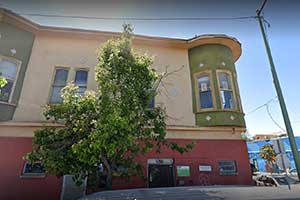Skip To Rehab Listing
That is one of the reasons the Emeryville area has 25 drug and alcohol rehab centers accessible to local residents who struggle with drug and/or alcohol abuse. These facilities aid the area's population of 24,572 regardless of age or situations in order to make effective rehab accessible to anyone who is looking for it.
Alcohol and Drug Rehab Program Settings and Approaches
Emeryville area residents who face alcohol and drug abuse problems can choose from a variety of recovery settings based upon factors such as their location and individual needs.
Treatment settings include the following: inpatient rehabs, detox centers, long term rehab programs, outpatient substance abuse treatment services, short term drug abuse treatment.
Patients can also choose from many treatment methods designed to offer effective services for their needs: dual diagnosis drug rehab, substance abuse counseling approach, 12-step facilitation approach, cognitive/behavior therapy, matrix model, relapse prevention.
Special Programs for Addiction Treatment
Drug and alcohol addiction is not necessarily the same for everyone, so treatment must be individualized. That is why alcohol and drug treatment facilities in the Emeryville area offer a number of special programs intended to provide a tailored approach to recovery for clients. These programs include the following: active duty military, self-help groups, co-occurring mental and substance abuse disorders, veterans, child care for clients children, clients referred from the court/judicial system.
Recovery Payment Alternatives
Clients often avoid rehabilitation because of worries about money. However, addiction treatment centers make a variety of financing alternatives available to clients in order to help with their economic considerations and improve opportunities for recovery. Some of these options are included here: private medical insurance, cash or self-payment, sliding fee scale, military insurance, county or local government funds, state welfare or child and family services funds.
Drug and alcohol recovery is accessible for Emeryville, California residents via many different programs, approaches, and financing options that put sustained recovery within reach.
Commonly Asked Questions about Addiction and Treatment
What are the principles of recovery from drug and alcohol addiction?
Recovery from drug and alcohol addiction is an unique and individualized process. However, there are several key principles that are commonly recognized as important for successful recovery. These principles include:
- Acceptance: Acknowledging the presence of an addiction and the need for change is the first step in the recovery process. Acceptance involves recognizing the consequences of substance use and taking responsibility for one's actions.
- Commitment: Recovery requires a strong commitment to change and the willingness to take consistent action. This may involve making difficult decisions, such as cutting ties with unhealthy influences or seeking professional help.
- Support: Building a strong support network is critical in recovery. This can include friends, family, peers, counselors, or support groups, who can provide encouragement, advice, and understanding throughout the process.
- Holistic Approach: Addressing all aspects of a person's life�''physical, mental, emotional, and spiritual�''can contribute to a more successful recovery. This may involve incorporating healthy habits, such as exercise, proper nutrition, and mindfulness practices, into one's daily routine.
- Personal Responsibility: Taking personal responsibility for one's actions and choices is essential for long-term recovery. This includes understanding triggers, developing coping strategies, and setting boundaries to prevent relapse.
- Coping Skills: Learning and practicing healthy coping skills can help manage stress and emotional challenges without resorting to substance use. These skills may include relaxation techniques, problem-solving strategies, or communication skills.
- Ongoing Growth: Recovery is a lifelong process that requires ongoing growth and self-improvement. This may involve setting personal goals, building self-esteem, and continuously evaluating and adjusting one's approach to recovery.
- Hope: Believing in the possibility of a better future and maintaining a positive outlook is crucial for recovery. Hope can serve as a powerful motivator and provide the strength to overcome setbacks and challenges.
- Honesty: Being honest with oneself and others is essential for building trust and promoting self-awareness in recovery. Honesty helps individuals confront their struggles and maintain accountability for their actions.
- Patience: Recovery is a gradual process that requires patience and perseverance. It's important to recognize that setbacks and challenges are a normal part of the journey and to maintain a long-term perspective on personal growth and healing.
What is the process of drug rehabilitation?
"Drug rehabilitation, also known as drug rehab, is a comprehensive process aimed at helping individuals overcome substance use disorders and achieve long-term recovery. The process of drug rehabilitation typically involves several stages and components, which may vary depending on the individual's unique needs, the type of addiction, and the chosen treatment facility. The following is an overview of the general process of drug rehabilitation:
Assessment and evaluation: The first step in drug rehab is a thorough assessment and evaluation of the individual's physical, psychological, and social circumstances. This information helps healthcare professionals determine the severity of the addiction, identify any co-occurring mental health disorders, and develop a personalized treatment plan tailored to the individual's needs.
Detoxification: Detoxification, or detox, is the process of clearing drugs and toxins from the body. Depending on the substance and severity of the addiction, detox may be medically supervised to manage withdrawal symptoms safely and alleviate discomfort. In some cases, medications may be prescribed to ease withdrawal symptoms and prevent complications.
Therapy and counseling: Once the individual is stabilized, they will participate in various forms of therapy and counseling to address the psychological and emotional aspects of addiction. These may include individual, group, or family therapy sessions, and utilize evidence-based approaches such as Cognitive Behavioral Therapy (CBT), Dialectical Behavior Therapy (DBT), or Motivational Interviewing (MI) to help individuals understand the underlying factors contributing to their addiction and develop healthy coping strategies.
Medication management: In some cases, medications may be used during the rehabilitation process to manage withdrawal symptoms, reduce cravings, or treat co-occurring mental health disorders. Medication-Assisted Treatment (MAT) is an example of this, which combines medications with counseling and behavioral therapies to treat opioid or alcohol addiction.
Education and life skills training: Drug rehabilitation programs often include educational sessions and life skills training to help individuals understand the nature of addiction and develop essential skills for maintaining sobriety, such as stress management, communication, and decision-making.
Peer support and group therapy: Engaging in peer support groups, such as Alcoholics Anonymous (AA) or Narcotics Anonymous (NA), can provide valuable encouragement, understanding, and accountability during the recovery process. These groups often play a significant role in helping individuals maintain long-term sobriety.
Aftercare planning and follow-up: As the individual approaches the end of their rehabilitation program, a comprehensive aftercare plan is developed to support their transition back into daily life and prevent relapse. This plan may include ongoing therapy, support group meetings, sober living arrangements, or other resources to help maintain recovery.
Continuous support: Recovery from addiction is a lifelong process that requires ongoing effort and support. Maintaining connections with support groups, therapists, and other individuals in recovery can be crucial in sustaining long-term sobriety and managing potential relapses."
What is drug addiction commonly called in the mental health fields?
In the mental health field, drug addiction is commonly referred to as a "Substance Use Disorder" (SUD). This term is used in the Diagnostic and Statistical Manual of Mental Disorders, Fifth Edition (DSM-5), which is the standard classification of mental disorders used by mental health professionals in the United States.
A Substance Use Disorder is defined as a pattern of behaviors characterized by an inability to control or cut down on use, spending a lot of time obtaining the substance, craving the substance, failing to fulfill obligations at work, school, or home due to substance use, and continuing to use the substance despite knowing it's causing physical or psychological harm.
Substance Use Disorders can be further categorized based on the specific substance involved, such as Alcohol Use Disorder, Opioid Use Disorder, Cannabis Use Disorder, and so forth. The severity of the disorder is also assessed (mild, moderate, or severe) based on the number of diagnostic criteria met by an individual.
It's worth noting that this terminology emphasizes the understanding of drug addiction as a medical disorder, rather than a moral failing or a matter of willpower. This shift in language is part of a larger effort to reduce stigma and promote a more compassionate, effective approach to treatment.













